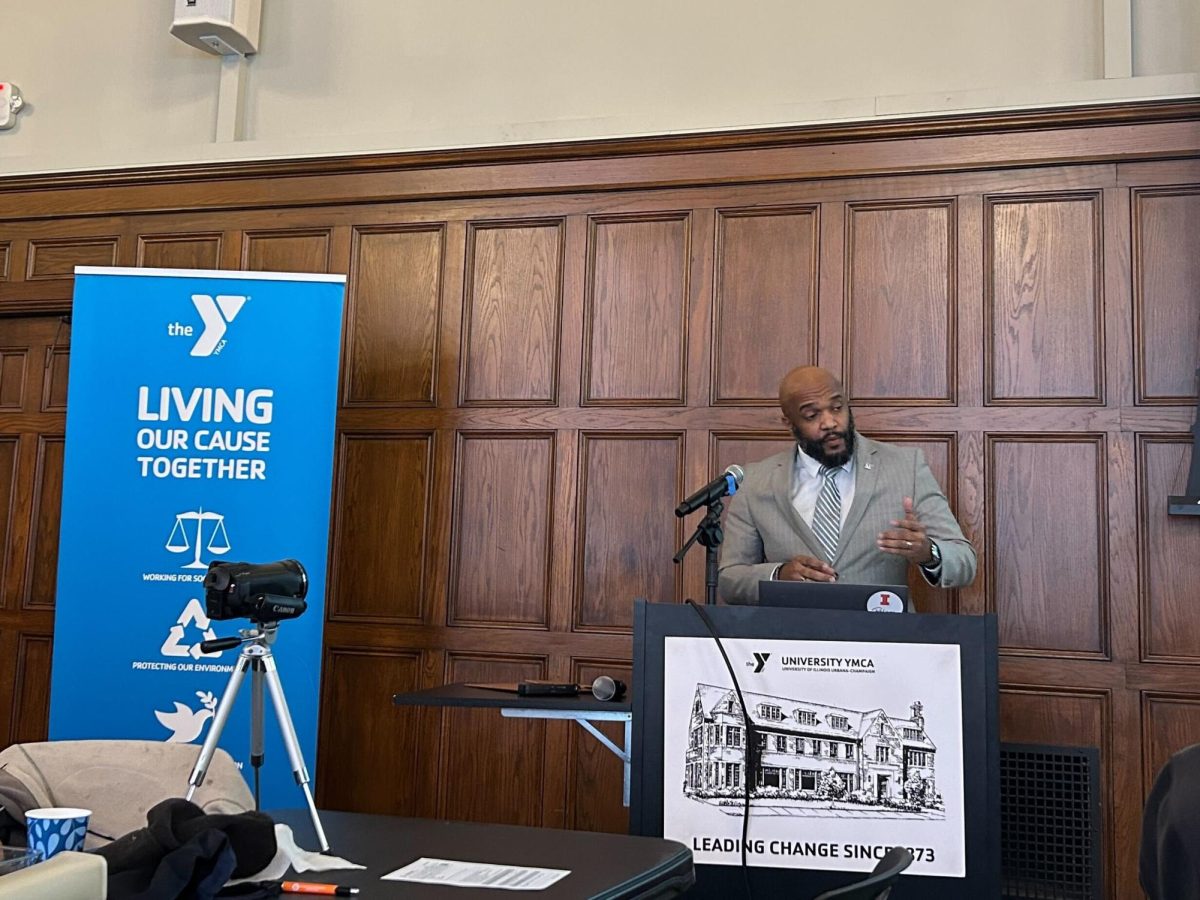Last updated on Nov. 18, 2024 at 02:37 p.m.
University Provost John Coleman gave a lecture at the University YMCA Friday morning titled “Election 2024 on Campus and Across the Country.” In his talk, he discussed the election results, the factors that went into the Republican Party’s success and the implications these results have on higher education.
Coleman, a scholar specializing in political parties and elections, gave the lecture as a part of the YMCA’s “Friday Forum + Conversation Café” series. He began by discussing how election day played out on campus.
“As it turned out, the campus itself was more or less like any election year so far as I can tell,” Coleman said. “It wasn’t a huge dramatic upsurge of marches, demonstrations, that sort of thing; it was a little quieter than some people thought.”
According to Coleman, the success of the GOP in all areas of this election was “not a surprising outcome” to those with a political science background when considering polling projections and the factors at play this election cycle. Outside of Donald Trump’s victory, the Republican Party won full control of Congress, regaining control of the Senate with 53 seats and narrowly won the House of Representatives, with a current 218-to-212 lead over the Democrats.
Get The Daily Illini in your inbox!
Coleman said one of the main issues that contributed to these election results was voter dissatisfaction with the state of the economy and high inflation. This led to anti-incumbent sentiment and low approval ratings for the Biden-Harris Administration, which Kamala Harris was unable to distance herself from in her campaign.
“It hurt Vice President Harris that she, in a sense, inherited the damage of low approval ratings for President Biden,” Coleman said. “She never really did actively compete with any of the policies of Joe Biden because it’s an almost impossible thing to do as the vice president to go out there and really challenge the policies that your team is a part of.”
With Trump and the GOP representing a change from the status quo, there was a surge in conservatism across nearly all demographic lines, including shifts in several groups that do not typically vote Republican.
Trump has gained support among people living in poverty and people without a college education — a trend Coleman sees as a major issue.
“For those of us in higher education, I think we’re very concerned about this (trend); this is not what we want to see,” Coleman said. “We don’t want to see education as a dividing part of our country; we want to think of education as a way to get people to think together, talk together, converse together.”
Coleman ended the talk by considering how these results could impact higher education. The primary way higher education is affected by elections is through changes to federal funding and budgeting that the University and other public institutions receive.
“Federal funding is the main leverage point that the federal government has,” Coleman said. “Most of the ways that the federal government has its influence in higher education is by (the federal government) saying, ‘If you don’t do X, we will cut federal funding from you.’”
This has potential implications for grants the University receives to fund research, student loan programs and Pell Grants. However, Coleman said it is uncertain how things will change because college affordability is an important issue to both parties.
The policies and regulations the Trump administration and the Republican Party have shown interest in pursuing are another way these results could impact higher education. Coleman highlighted several examples, including changing the language around Title IX, altering the accreditation process and taxing university endowments, which are currently tax-exempt.
Coleman concluded by stating that, at the moment, it is unclear exactly how diversity, equity and inclusion efforts in higher education will be affected in the next four years. DEI efforts, in large part, are supported through federal funding and laws but have already been reduced by the previous Trump administration. In 2023, the Supreme Court, with three Trump appointees, struck down affirmative action in a 6-3 decision, putting an end to race-based admissions.
“All these are things that people are talking about that they’re concerned could happen, but we just don’t know what the landscape is at this point,” Coleman said.







